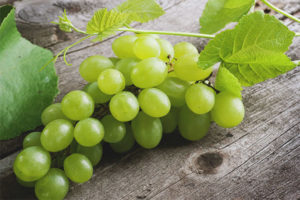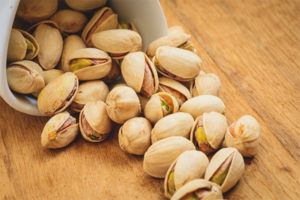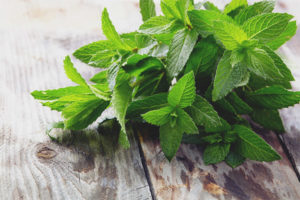The content of the article
Often, the expectant mother wants to eat something sour. Thus, the body requires organic acids and natural enzymes that promote more comfortable and fast digestion.
Unfortunately, it is undesirable for a pregnant woman to consume many berries, and citrus is recommended to be limited due to their allergenicity. And here comes the tropical kiwi fruit - a tasty, juicy and very useful fruit for mommy and baby. It is believed that kiwi rarely cause allergies, despite the high content of ascorbic acid. But the harm from the imported product can still be, therefore, it is important to know how to choose and store the fruit.
Chemical composition
A popular tropical fruit combines a whole gamut of flavor characteristics due to its quality composition:
- cellulose;
- organic acids;
- antioxidants;
- ash;
- starch;
- saturated fatty acids;
- mono - and disaccharides (glucose, fructose, etc.).
Vitamins of group B (thiamine, riboflavin, folic acid, pyridoxine, niacin), E, C, PP, as well as beta-carotene.
Macro and trace elements (calcium, potassium, chlorine, phosphorus, magnesium, manganese, aluminum, iodine, fluorine, iron, etc.).
The energy value of the “Chinese gooseberry” is up to 65 kcal per 100 g, which makes it suitable for therapeutic and dietary nutrition.
Ascorbic acid is known to be responsible for the formation and strengthening of the immune system, increasing resistance to pathogenic microflora, bacteria, colds. Also, the antioxidant helps fight free radicals and radionuclides, reduces the risk of developing benign and malignant tumors. Vitamin C is necessary for the proper absorption of iron.
Kiwi is considered a valuable storehouse of folic acid, which is necessary for the development and development of the child’s nervous system. B9 produces the prevention of malformations and pathologies of the development of the neural tube.
Vitamins B in combination with magnesium strengthen the nervous system, eliminate irritability, nervousness and apathy.
Magnesium and potassium are involved in the work of the cardiovascular system, stimulate the work of the heart muscle, tone up the walls of blood vessels.Heart health is very important, as it is forced to distill more blood through the extra circle of blood circulation, to feed the developing organism. Also, potassium lowers blood pressure, which is important for the prevention of hypertension and pre-eclampsia. And magnesium, in turn, regulates the concentration of glucose in the blood, heals the muscular system and joints.
Iron promotes hemoglobin production and oxygen transport to every cell. Eating kiwi, you are the prevention of anemia.
Calcium and phosphorus are necessary for a strong and healthy bone system of both mother and baby. In pregnant women, these trace elements help to improve and strengthen the tooth enamel, as well as the hair and nail plate.
Iodine has a positive effect on the thyroid gland and the hormones it produces, which is important for maintaining a normal pregnancy.
Benefits for pregnant women
Tropical kiwi is tasty and healthy, as evidenced by the positive effects produced.
- Accelerates metabolism. Organic acids and carbohydrates have a positive effect on energy metabolism, stimulate the absorption of other useful components.Also, thanks to kiwi, the calories and fat reserves are burned, which leads to a gradual healthy weight loss.
- The placenta develops. Vitamin A and E, other vitamins and minerals contribute to the formation of a closer connection between mother and child.
- Output cholesterol. Organic acids and fiber help clean the blood vessels of atherosclerotic and cholesterol plaques.
- Digestion is normalized. Dietary fiber cleans the intestines from toxins, promote comfortable digestion and regular stools. That is, the use of kiwi can be considered as prevention of constipation in pregnant women.
- Interferes with the development of diabetes and gestational diabetes. Kiwi lowers sugar and regulates insulin production.
- Genetic information is accumulating. Thiamine and riboflavin are responsible for the transfer of DNA from mother to child, support a healthy hormonal background.
- Signs of toxicity are reduced. Sour unripe fruits suppress morning sickness and stimulate a good appetite. If there is a tendency to heartburn, it is better to choose a ripe kiwi.
- Extra fluid is discharged. The fruit helps to cleanse the cells of accumulated moisture, thereby reducing tissue swelling and heaviness in the legs.
How to choose a kiwi
It is a known fact that tropical fruits are treated with preservatives, essential oils, waxes and even pesticides before transportation. These components allow you to save the "beneficial" appearance and flavor of the fruit. All these substances are harmful to the mother and baby, so it is important to choose the right kiwi by the following criteria.
- The fruit should be firm and elastic, without dents and the integrity of the peel.
- Skin color can be dark green or brown. There should be no dark or yellow spots, traces of rot. The villi should be peeled off with the movement of a finger.
- The aroma of kiwi is thin, has notes of citrus. The pronounced smell of the fruit indicates the use of flavors (for example, essential oils).
- On the surface of the fruit should be no greasy film, and with a slight squeezing does not stand out moisture.
- The kiwi fruit stem is dry and dense, not rotten.
After purchase, the fruit must be thoroughly washed with warm water and soap. Then the peel is cut off, like in potatoes, which reduces the risk of chemical components entering the body.
How to store the fruit so that it retains its beneficial properties? Unlike other fruits, kiwi must ripen at room temperature (it is undesirable for one fruit to touch another).The place should be ventilated and protected from direct sunlight. Green fruit can ripen in this way for 3 days.
Harm and side effects
It is known that an exotic product contains various allergens: benzoates, amino acids, tyramine, salicylates, etc. Of course, they rarely cause allergies, but still can worsen the condition of a pregnant woman and lead to digestive disorders. Also, some components slow down the liver, which causes discomfort in the lumbar region.
Nutritionists consider up to 2 small fruits a day to be a harmless dose. The frequency of use of kiwi should not exceed 3-4 times a week.
It is strictly forbidden to eat fruit in the presence of contraindications:
- Acidity, tendency to heartburn.
- Diseases of the gastrointestinal tract in acute form (gastritis, pancreatitis, ulcers, colitis, and others).
- Food allergies to sour berries, green fruits and vegetables, as well as citruses.
- Digestive disorders (acute intoxication, diarrhea, dysbiosis).
- Complications of pregnancy (hypertonus, risk of miscarriage, etc.).
- Low pressure.
If the body tolerates an exotic fruit, it will only bring health and benefit to the mother and baby.The small fruit perfectly supports the immune system, strengthens the nervous system and helps to overcome chronic constipation.
Video: why do you need to eat kiwi every day?












To send